How to Choose the Best Power Transformer Manufacturers for Your Project?
Are you struggling to find the right power transformer manufacturer for your project? The choice can make or break your entire electrical system’s performance and reliability.
Choosing the best power transformer manufacturer involves evaluating their experience, technical capabilities, quality standards, and after-sales support. Look for manufacturers with a proven track record, adherence to industry standards, robust quality control processes, and comprehensive customer service.
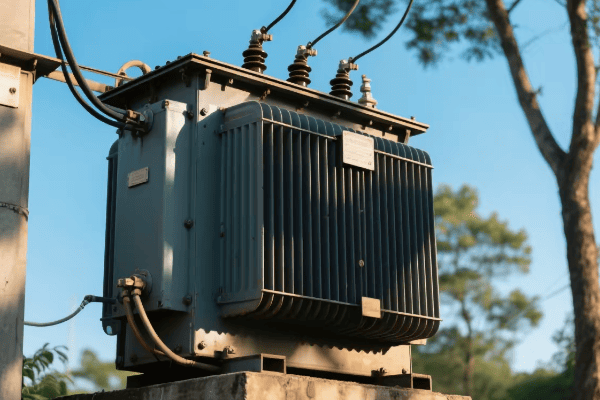
As someone who has spent years in the power industry, I’ve seen firsthand how crucial this decision can be. Let’s dive into the key factors that will help you make the right choice for your project.
Key Factors in Evaluating Power Transformer Manufacturers: A Comprehensive Guide?
Have you ever wondered what separates a great transformer manufacturer from an average one? The answer lies in a combination of factors that go beyond just the price tag.
Key factors in evaluating power transformer manufacturers include their technical expertise, manufacturing capabilities, quality control processes, financial stability, and industry reputation. A comprehensive assessment of these factors ensures you select a manufacturer capable of meeting your project’s specific needs.
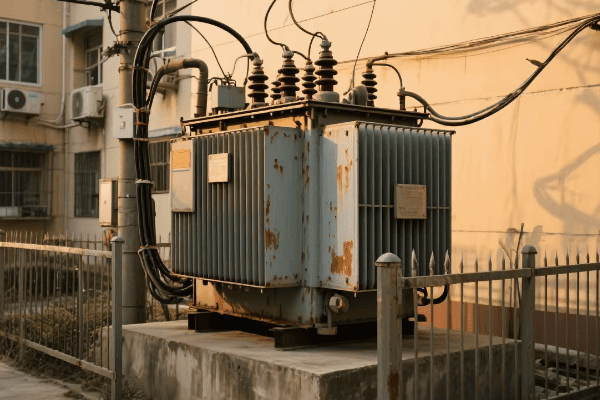
Let’s break down these factors in detail:
Technical Expertise
A manufacturer’s technical know-how is crucial:
-
Design Capabilities:
- Look for manufacturers with strong in-house design teams.
- They should be able to customize transformers to your specifications.
-
Innovation:
- Check if they invest in R&D.
- Innovative manufacturers often offer more efficient and reliable products.
Manufacturing Capabilities
The production facilities matter:
-
Production Capacity:
- Ensure they can meet your volume requirements.
- Look for manufacturers with flexible production lines.
-
Equipment and Technology:
- Modern, state-of-the-art equipment often results in better quality.
- Advanced technology can lead to more precise and efficient manufacturing.
Quality Control
Quality should be a top priority:
-
Certifications:
- Look for ISO 9001 and industry-specific certifications.
- These indicate a commitment to quality management.
-
Testing Facilities:
- On-site testing capabilities are a big plus.
- They should perform rigorous tests on each transformer.
Financial Stability
A manufacturer’s financial health is important:
-
Company Size and Age:
- Established companies often have more stability.
- However, don’t overlook innovative smaller firms.
-
Financial Reports:
- If available, review their financial statements.
- Look for steady growth and profitability.
Here’s a comparison table of these factors:
| Factor | Why It’s Important | What to Look For |
|---|---|---|
| Technical Expertise | Ensures product quality and innovation | Strong design team, R&D investment |
| Manufacturing Capabilities | Affects production quality and capacity | Modern equipment, flexible production |
| Quality Control | Guarantees product reliability | ISO certifications, rigorous testing |
| Financial Stability | Ensures long-term support and reliability | Established presence, healthy financials |
I remember a project where we initially chose a manufacturer based solely on price. The transformers arrived late and had quality issues. We learned the hard way that a comprehensive evaluation is crucial. In a later project, we thoroughly assessed manufacturers using these factors. The result? On-time delivery of high-quality transformers that exceeded our performance expectations.
By considering these key factors, you’re not just buying a transformer; you’re investing in reliability and performance. Remember, the cheapest option isn’t always the most cost-effective in the long run. A thorough evaluation using these criteria will help you find a manufacturer that can truly meet your project’s needs and contribute to its success.
Industry Experience and Reputation: Why They Matter in Transformer Manufacturing?
Have you ever wondered why some companies stand the test of time while others fade away? In the world of transformer manufacturing, experience and reputation are not just buzzwords – they’re the bedrock of reliability.
Industry experience and reputation are crucial in transformer manufacturing because they indicate a company’s ability to consistently deliver quality products and navigate complex projects. Experienced manufacturers often have a proven track record, deep industry knowledge, and established quality processes.
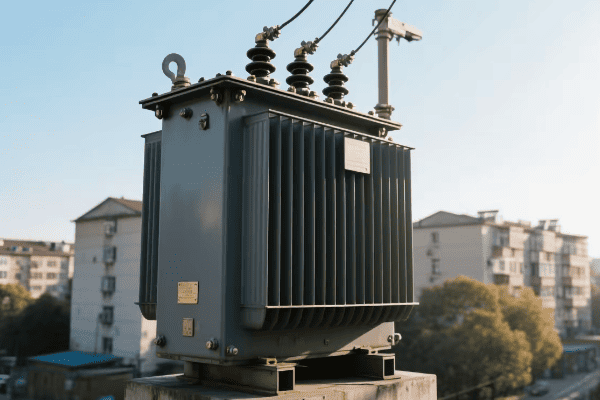
Let’s explore why these factors are so important:
The Value of Experience
Experience in transformer manufacturing is invaluable:
-
Problem-Solving Skills:
- Experienced manufacturers have encountered and solved numerous challenges.
- They can anticipate potential issues before they become problems.
-
Industry Knowledge:
- Years in the business mean a deep understanding of industry trends and standards.
- This knowledge translates into better product design and customer advice.
Reputation as a Quality Indicator
A manufacturer’s reputation speaks volumes:
-
Track Record:
- Look for a history of successful projects similar to yours.
- A good reputation is built on consistent performance over time.
-
Customer Feedback:
- Seek out testimonials and case studies.
- Positive feedback from other clients in your industry is particularly valuable.
Stability and Reliability
Long-standing companies offer benefits:
-
Financial Stability:
- Established manufacturers are more likely to be financially sound.
- This reduces the risk of project delays or company closure mid-project.
-
Long-Term Support:
- Experienced companies are more likely to offer robust after-sales support.
- They’re usually around to honor warranties and provide spare parts.
Here’s a comparison of new vs. experienced manufacturers:
| Aspect | New Manufacturer | Experienced Manufacturer |
|---|---|---|
| Problem-Solving | Limited real-world experience | Extensive troubleshooting skills |
| Industry Knowledge | Up-to-date but may lack depth | Deep, practical industry insights |
| Track Record | Limited or no history | Proven performance over time |
| Financial Stability | May be less stable | Usually more financially secure |
| Long-Term Support | Uncertain future presence | Likely to provide ongoing support |
I once worked on a project where we had to choose between a well-established manufacturer and a newer, cheaper option. We decided to go with the experienced manufacturer despite the higher cost. During the project, we encountered some unexpected challenges with the installation site. The manufacturer’s team, drawing on their years of experience, quickly proposed and implemented solutions that saved us time and money in the long run. Their ability to navigate complex situations smoothly was a testament to the value of industry experience.
When choosing a transformer manufacturer, don’t underestimate the power of experience and a solid reputation. These factors often translate into smoother project execution, better problem-solving, and long-term reliability. While newer companies may offer innovative solutions, the peace of mind that comes with a proven track record is invaluable, especially for critical infrastructure projects. Remember, in transformer manufacturing, experience isn’t just about age – it’s about the accumulated wisdom and proven capability to deliver quality products consistently.
Technical Specifications and Standards: Ensuring Your Transformer Meets Project Requirements?
Have you ever bought something only to find out it doesn’t quite fit your needs? When it comes to power transformers, this kind of mismatch can be costly and dangerous. That’s why understanding technical specifications and standards is crucial.
Technical specifications and standards in transformer manufacturing ensure that the product meets specific performance, safety, and compatibility requirements. They cover aspects like voltage ratings, efficiency, insulation levels, and environmental factors. Adherence to these standards guarantees that the transformer will function correctly and safely in your project.
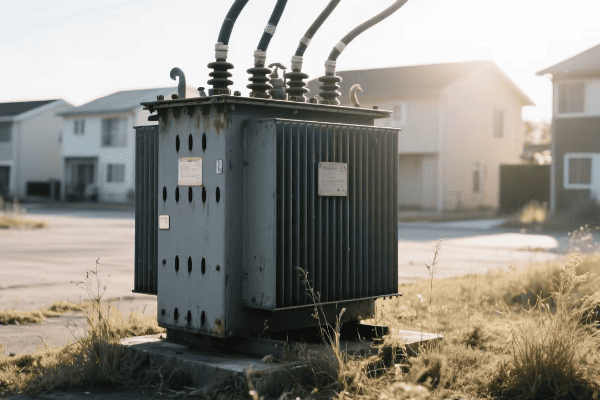
Let’s dive into the key aspects of technical specifications and standards:
Voltage and Power Ratings
Getting these right is fundamental:
-
Primary and Secondary Voltage:
- Must match your system’s requirements exactly.
- Even small discrepancies can lead to inefficiency or failure.
-
Power Rating (kVA or MVA):
- Should be sized correctly for your load requirements.
- Oversizing wastes money; undersizing risks overheating and failure.
Efficiency and Losses
These factors affect long-term costs:
-
No-Load Losses:
- Occur constantly, even when the transformer is idle.
- Lower no-load losses mean better efficiency and lower operating costs.
-
Load Losses:
- Occur when the transformer is under load.
- Affect efficiency and heat generation under working conditions.
Insulation and Temperature Rise
Critical for safety and longevity:
-
Insulation Class:
- Determines the transformer’s ability to withstand temperature stress.
- Higher classes allow for higher operating temperatures.
-
Temperature Rise:
- Specifies how much the transformer can heat up under full load.
- Lower temperature rise often means longer transformer life.
Environmental Considerations
Adapting to the installation environment:
-
Altitude:
- Higher altitudes may require derating or special designs.
- Affects cooling and insulation requirements.
-
Climate Conditions:
- Humidity, temperature extremes, and pollution levels must be considered.
- May influence the choice between dry-type and oil-filled transformers.
Here’s a table summarizing key technical specifications:
| Specification | Why It’s Important | What to Consider |
|---|---|---|
| Voltage Ratings | Ensures compatibility with your system | Must match exactly |
| Power Rating | Determines capacity to handle load | Size according to current and future needs |
| Efficiency | Affects operating costs | Look for high efficiency ratings |
| Insulation Class | Impacts safety and lifespan | Choose based on operating conditions |
| Temperature Rise | Influences transformer life | Lower is generally better |
| Environmental Factors | Ensures proper operation in specific conditions | Consider altitude, climate, pollution |
I recall a project where we initially overlooked the altitude factor for a transformer installation in a mountainous region. The standard transformer we ordered couldn’t perform efficiently at that altitude due to reduced air density affecting cooling. We had to quickly work with the manufacturer to modify the design, which led to delays and additional costs. This experience taught me the importance of thoroughly reviewing all technical specifications and environmental factors before finalizing a transformer order.
When selecting a transformer, pay close attention to these technical specifications and standards. They’re not just numbers on a sheet – they’re the blueprint for your transformer’s performance and longevity. Always ensure that the manufacturer can provide detailed specifications and explain how their product meets or exceeds relevant industry standards. Remember, a transformer that perfectly matches your technical requirements is not just a purchase; it’s an investment in the reliability and efficiency of your entire electrical system.
Quality Assurance: Assessing Manufacturers’ Commitment to Excellence?
Have you ever wondered what separates a good transformer from a great one? The answer often lies in the manufacturer’s commitment to quality assurance. But how can you assess this commitment?
Quality assurance in transformer manufacturing involves rigorous testing, adherence to international standards, and continuous improvement processes. A manufacturer’s commitment to quality can be assessed through their certifications, testing procedures, quality control measures, and track record of product reliability.
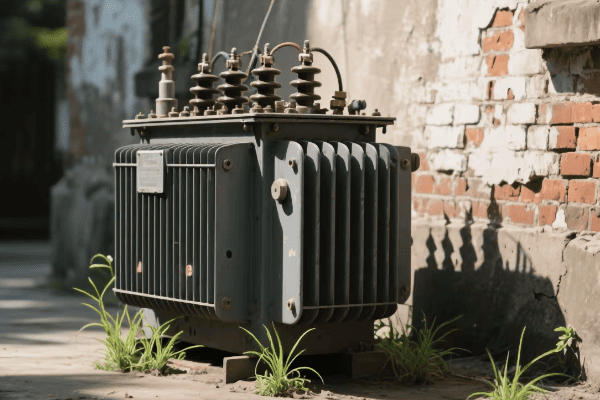
Let’s explore the key aspects of quality assurance in transformer manufacturing:
Certifications and Standards
Look for adherence to recognized standards:
-
ISO 9001:
- This certification indicates a robust quality management system.
- It ensures consistent quality across all processes.
-
Industry-Specific Standards:
- Look for compliance with standards like IEEE, IEC, or ANSI.
- These ensure the transformer meets specific industry requirements.
Testing Procedures
Rigorous testing is crucial:
-
Routine Tests:
- Should be performed on every transformer.
- Include tests for turns ratio, insulation resistance, and no-load losses.
-
Type Tests:
- Performed on representative samples.
- Include temperature rise, impulse, and short-circuit tests.
Quality Control Measures
Ongoing quality checks are essential:
-
In-Process Inspections:
- Regular checks during the manufacturing process.
- Help catch and correct issues early.
-
Final Inspection:
- Comprehensive check before the transformer leaves the factory.
- Ensures all specifications are met.
Continuous Improvement
Look for a culture of ongoing enhancement:
-
Feedback Integration:
- How the manufacturer incorporates customer feedback.
- Indicates a commitment to continuous product improvement.
-
Investment in Technology:
- Regular updates to manufacturing and testing equipment.
- Shows dedication to staying at the forefront of quality.
Here’s a comparison table of quality assurance aspects:
| Aspect | What to Look For | Why It’s Important |
|---|---|---|
| Certifications | ISO 9001, Industry standards | Indicates adherence to recognized quality systems |
| Routine Tests | Comprehensive test reports | Ensures each transformer meets specifications |
| Type Tests | Detailed type test certificates | Verifies design performance under extreme conditions |
| In-Process Inspections | Documentation of quality checks | Shows attention to detail throughout manufacturing |
| Continuous Improvement | Evidence of product enhancements | Indicates commitment to long-term quality |
I remember visiting a transformer manufacturing facility where quality assurance was clearly a top priority. They had a dedicated testing lab with state-of-the-art equipment. What impressed me most was their approach to continuous improvement. They showed me how they tracked and analyzed data from every transformer they produced, using this information to refine their processes constantly. This commitment to quality was evident in their low defect rates and high customer satisfaction scores.
When assessing a manufacturer’s commitment to quality, don’t just look at their final product. Examine their entire approach to quality assurance. A manufacturer with robust quality processes is more likely to produce reliable transformers consistently. Remember, investing in a high-quality transformer from a manufacturer committed to excellence can save you significant time and money in the long run by reducing the risk of failures and extending the transformer’s lifespan.
Beyond the Purchase: The Importance of After-Sales Support in Transformer Selection?
Have you ever bought a complex piece of equipment only to find yourself lost when it comes to maintenance or troubleshooting? When it comes to power transformers, the support you receive after the purchase can be just as crucial as the transformer itself.
After-sales support in transformer selection is critical for ensuring long-term performance and reliability. It includes services like installation assistance, maintenance support, spare parts availability, and technical consultations. Good after-sales support can significantly extend a transformer’s lifespan and minimize downtime.
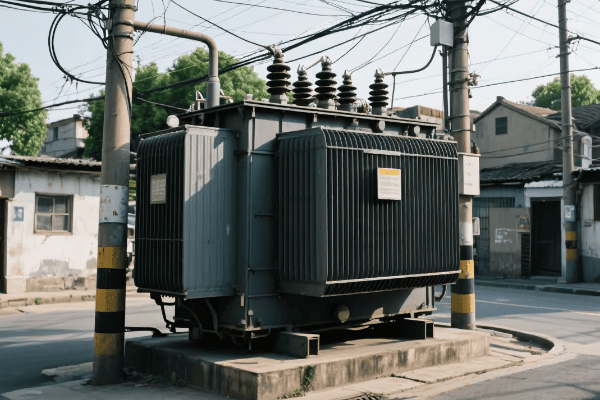
Let’s explore why after-sales support is so important and what to look for:
Installation and Commissioning Support
Getting started right is crucial:
-
On-Site Assistance:
- Look for manufacturers who offer expert guidance during installation.
- This ensures proper setup and reduces the risk of early failures.
-
Commissioning Services:
- Professional commissioning can catch potential issues early.
- It also ensures the transformer is operating at peak efficiency from day one.
Maintenance and Repair Services
Ongoing support keeps your transformer running smoothly:
-
Preventive Maintenance Programs:
- Regular check-ups can prevent major issues.
- Look for manufacturers offering comprehensive maintenance packages.
-
Repair Services:
- Quick and efficient repair services are crucial when issues arise.
- Check the manufacturer’s response time and repair capabilities.
Spare Parts Availability
Easy access to parts is essential:
-
Stock of Critical Components:
- Manufacturers should maintain a stock of essential spare parts.
- This reduces downtime in case of component failure.
-
Long-Term Availability:
- Ensure the manufacturer commits to long-term spare parts availability.
- This is crucial for the transformer’s entire lifecycle.
Technical Support and Training
Ongoing knowledge transfer is valuable:
-
Technical Consultations:
- Access to expert advice for operational queries or issues.
- Look for manufacturers offering robust technical support.
-
Training Programs:
- Some manufacturers offer training for your maintenance team.
- This can improve in-house maintenance capabilities and reduce reliance on external support.
Here’s a comparison table of after-sales support features:
| Support Feature | What to Look For | Why It’s Important |
|---|---|---|
| Installation Support | On-site expert assistance | Ensures proper setup and initial operation |
| Maintenance Programs | Regular check-up schedules | Prevents major issues and extends lifespan |
| Repair Services | Quick response times, skilled technicians | Minimizes downtime during failures |
| Spare Parts | Availability of critical components | Enables quick repairs and reduces downtime |
| Technical Support | Access to expert consultations | Helps resolve operational queries efficiently |
| Training Programs | Comprehensive operator training | Improves in-house maintenance capabilities |
I once worked with a client who chose a transformer based solely on its technical specifications and price, without considering after-sales support. Six months after installation, they faced a minor issue that could have been easily resolved. However, the lack of prompt support from the manufacturer led to extended downtime and significant production losses. This experience taught me the true value of comprehensiveafter-sales support. In contrast, on another project where we prioritized after-sales support in our selection criteria, we had a much smoother experience. When an unexpected issue arose, the manufacturer’s team was on-site within hours, quickly resolving the problem and providing additional training to our staff to prevent future occurrences.
When selecting a transformer manufacturer, don’t underestimate the importance of after-sales support. It’s not just about solving problems when they occur; it’s about preventing issues, optimizing performance, and ensuring the longevity of your investment. A manufacturer with strong after-sales support becomes a long-term partner in your project’s success, not just a one-time vendor.
Consider these points when evaluating after-sales support:
- Responsiveness: How quickly does the manufacturer respond to support requests?
- Expertise: Do they have a team of experienced technicians and engineers?
- Geographical Coverage: Can they provide support at your location?
- Documentation: Do they offer comprehensive manuals and technical documentation?
- Warranty Terms: What’s covered, and for how long?
Remember, the true cost of a transformer isn’t just its purchase price – it’s the total cost of ownership over its entire lifespan. Robust after-sales support can significantly reduce this long-term cost by preventing issues, extending the transformer’s life, and minimizing downtime. When you choose a manufacturer with excellent after-sales support, you’re not just buying a transformer; you’re investing in peace of mind and long-term operational efficiency.
Conclusion
Choosing the best power transformer manufacturer involves evaluating technical expertise, industry experience, quality assurance processes, and after-sales support. By carefully considering these factors, you can ensure a reliable, efficient, and long-lasting transformer for your project.
Free CHBEB Transformer Catalog Download
Get the full range of CHBEB transformers in one catalog.
Includes oil-immersed, dry-type, pad-mounted, and custom solutions.
Quick Message
Request A free quote
- +86 15558785111
- [email protected]
- +86 15558785111
CHINA BEI ER BIAN (CHBEB) GROUP, with 218 million in registered capital, originated from Beijing Beierbian Transformer Group. Headquartered in Beijing for R&D, it operates major production bases in Nanjing and Yueqing, producing high-quality products.
No 3,RongJing East Road,BeiJing Economic Technological Development Area,BeiJing,China
No 7️Xiangfeng Road,Jiangning,NanJing,JiangSu,China
No.211, Wei 16 Road, Industrial Zone, Yueqing, Wenzhou, Zhejiang, China.
XiangYang Industrial Zone ,YueQing,WenZhou,ZheJiang,China
- [email protected]
- +86 13057780111
- +86 13057780111
- +86 15558785111
Copyright © Bei Er Bian Group


